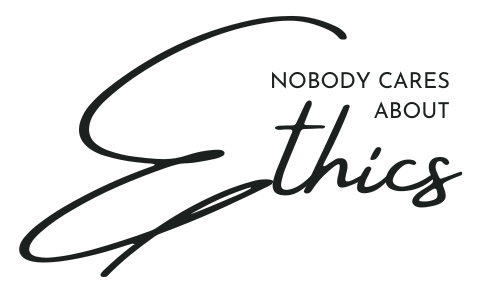The business case for AI ethics
Aug 18, 2025When most people hear "AI ethics" their mind goes straight to compliance tick-boxes and risk mitigation. Something that frustrates progress, adds layers of bureaucracy and gets in the way of innovation.
And bores everyone half to death 😴
I’d counter that AI ethics – or at least the approach I take – isn’t a barrier to good business. Done properly, it can be the catalyst.
Because at its core, AI ethics demands the kind of decision-making that leads to more sustainable outcomes: transparent, inclusive, holistic thinking that prioritises long-term value over short-term gains.
Let’s break it down point by point.
Transparency
Transparency in AI ethics operates at multiple levels, and each one offers business value.
At the individual level, it involves open conversations with your team about how everyone's using AI tools. Both to reduce risk and spot hidden opportunities.
At leadership level, transparency means being clear about your AI intent and vision — the how, what and why of your strategy. This grounds decisions in your business context and builds a culture of trust, rather than suspicion and anxiety.
At an industry level, the organisations leading transparent conversations about their AI practices are the ones shaping how the technology develops, rather than being passive recipients of “best practice” or led by hype.
Inclusivity
The people whose jobs AI is supposed to transform are often your best resource for making that transformation successful. But only if you ask them. Note I say transform, and not replace.
When you involve these voices in AI decision-making, you get undeniably better outcomes. And you build the trust and positive culture that makes change successful.
People who feel heard and valued perform better. People who understand why changes are happening adapt faster. People who have agency in shaping their tools use them more effectively.
Yes, this means tackling uncomfortable conversations about job security and anxiety about the future. But avoidance doesn't make these concerns disappear — they fester in the background, creating resistance and fear that undermines from within.
Holistic thinking
AI ethics forces you to think beyond departmental boundaries, and this might be its greatest business gift.
The hype touts AI as an efficiency tool — something to make individual processes faster or cheaper. But it's better viewed as an amplifier. It scales whatever patterns exist in your organisation, including the dysfunctional ones.
AI ethics demands that you consider the interconnections in your business and beyond. It asks: what happens when this decision ripples through other departments? What assumptions are we baking into this system? Who might be affected by this in ways we haven't considered?
This kind of systems thinking actively fixes and prevents business problems, rather than just “optimising” broken processes.
Playing the long game
Perhaps most importantly, AI ethics demands that you think about consequences beyond the immediate quarter or financial year.
What happens when your AI-powered cost-cutting makes your service so impersonal that customers leave? What happens when you automate away the entry-level roles that used to be your talent pipeline? What happens when efficiency gains are wiped out by time spent fact-checking?
Short-term thinking in business creates debt that eventually comes due with interest. AI ethics forces you to consider these longer-term costs upfront.
Of course, we can't foresee every consequence. The future is inherently uncertain, and some problems only emerge with time and scale. But that's no excuse for not trying to think beyond immediate gains. It's a reason to build in feedback loops from the start.
Ethics is good business sense
Framed this way, AI ethics is good business sense. It's about making decisions with your eyes open to complexity, different perspectives and long-term consequences.
Yes, compliance and risk management are essential. But I think the deeper purpose is to help people build systems that make work more meaningful, more sustainable and better for everyone in the long term.

